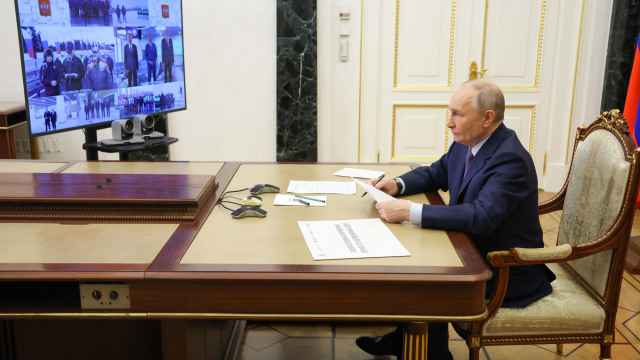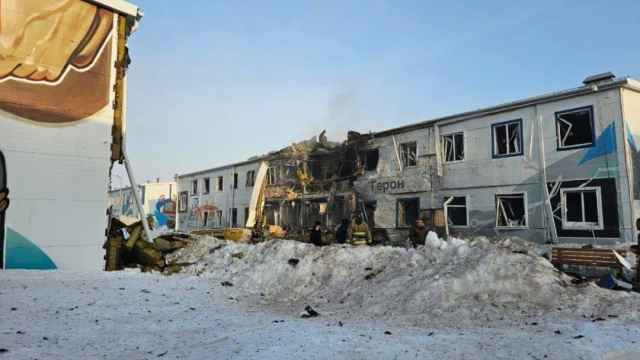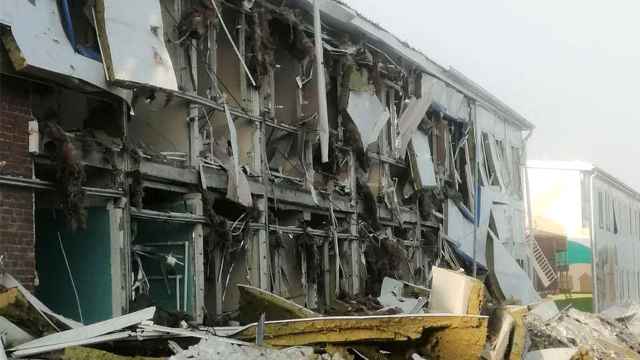South Africa has started investigating Russian companies’ widening recruitment of young women from African countries to manufacture drones, Bloomberg reported, citing an anonymous source familiar with the matter.
The Alabuga factory in Russia’s republic of Tatarstan is a major supplier of drones for the Russian military, producing as many as 200 Iranian-style Shahed drones per month that are then used in the country’s war on Ukraine.
The factory has been recruiting young women from dozens of poorer countries with promises of high salaries, education and career opportunities.
But many of those who arrive are assigned to assemble drones later used in strikes on Ukraine, according to local media reports and Western researchers.
South Africa’s government is now investigating Russian companies’ actions and what their intentions are, Bloomberg’s source said.
Officials in Pretoria may summon Russian diplomats for explanations, the source added.
“The South African government is actively investigating reports of foreign programs that recruit South Africans under false pretenses,” the Department of International Relations and Cooperation told Bloomberg. “The South African government is yet to find any credible evidence that job offers in Russia are inconsistent with their stated purpose. However, the government has noted the alleged recruitment of youth by the Alabuga company.”
In May, the local branch of the BRICS Women’s Business Alliance signed an agreement to provide 5,600 workers over the next year to Alabuga and a Russian construction company.
And in January, the BRICS Student Commission in South Africa advertised jobs in construction and hospitality at Alabuga for women aged 18 to 22, with South African influencers promoting the offers on Instagram and TikTok.
Russia faces a severe labor shortage exacerbated by demographic decline, the mobilization of hundreds of thousands of men for the war in Ukraine, restrictions on Central Asian migrant workers and a mass exodus of dissenters.
In South Africa, by contrast, roughly one-third of the workforce is unemployed.
The Alabuga Start program promotes itself as an initiative for “young and talented people from all over the world to build a career and change their lives for the better.”
But more than 90% of participants are sent to assemble drones, according to the Washington-based Institute for Science and International Security in Washington.
“They’re building weapons and they’re being exposed to the line of fire because they’re a part of a war now,” the institute’s senior fellow Spencer Faragasso told Bloomberg.
The institute said Alabuga is currently building housing for roughly 41,000 people, an indication that it may be planning to expand drone production. The plant has already rolled out six versions of the Shahed drone, originally imported from Iran.
The Associated Press in 2024 interviewed six young African women who said they had been deceived into drone assembly work at Alabuga.
Promised airfare, training and jobs in hospitality or catering, they instead found themselves handling caustic substances in grueling conditions, with low pay and no protective equipment.
Similar findings were later reported by The Wall Street Journal.
Interpol this year opened a probe in Botswana into whether Alabuga Start is linked to human trafficking, while in Argentina a lawsuit was filed accusing two former reality television contestants of participating in recruitment efforts for the program.
A Message from The Moscow Times:
Dear readers,
We are facing unprecedented challenges. Russia's Prosecutor General's Office has designated The Moscow Times as an "undesirable" organization, criminalizing our work and putting our staff at risk of prosecution. This follows our earlier unjust labeling as a "foreign agent."
These actions are direct attempts to silence independent journalism in Russia. The authorities claim our work "discredits the decisions of the Russian leadership." We see things differently: we strive to provide accurate, unbiased reporting on Russia.
We, the journalists of The Moscow Times, refuse to be silenced. But to continue our work, we need your help.
Your support, no matter how small, makes a world of difference. If you can, please support us monthly starting from just $2. It's quick to set up, and every contribution makes a significant impact.
By supporting The Moscow Times, you're defending open, independent journalism in the face of repression. Thank you for standing with us.
Remind me later.






